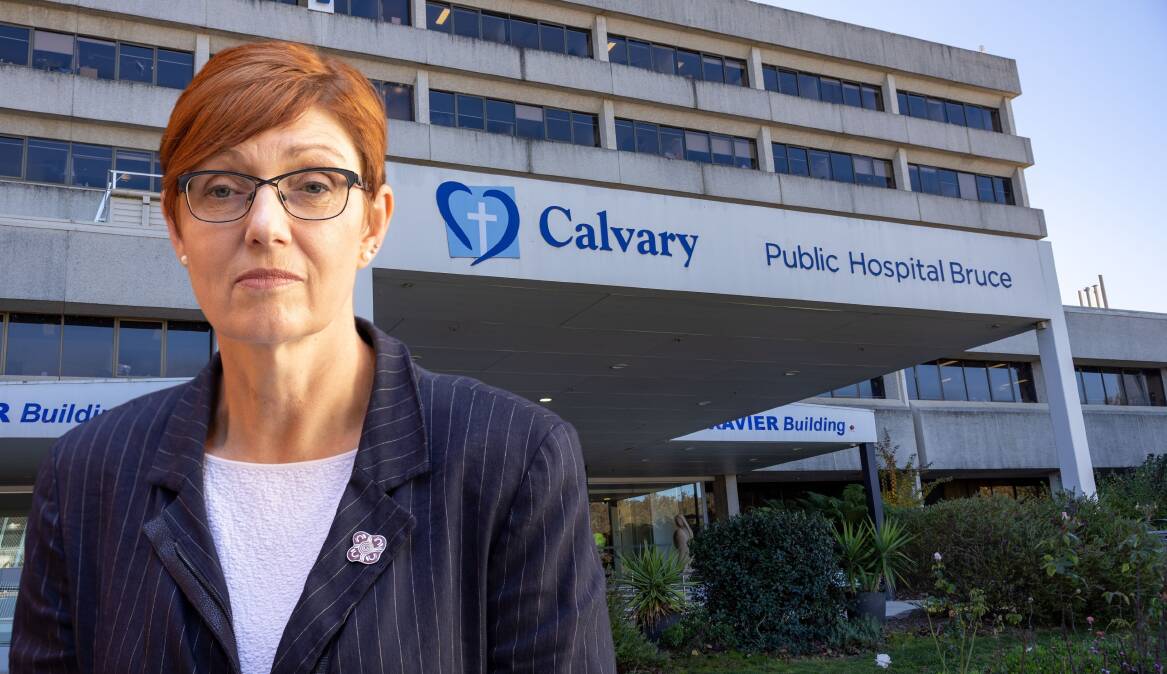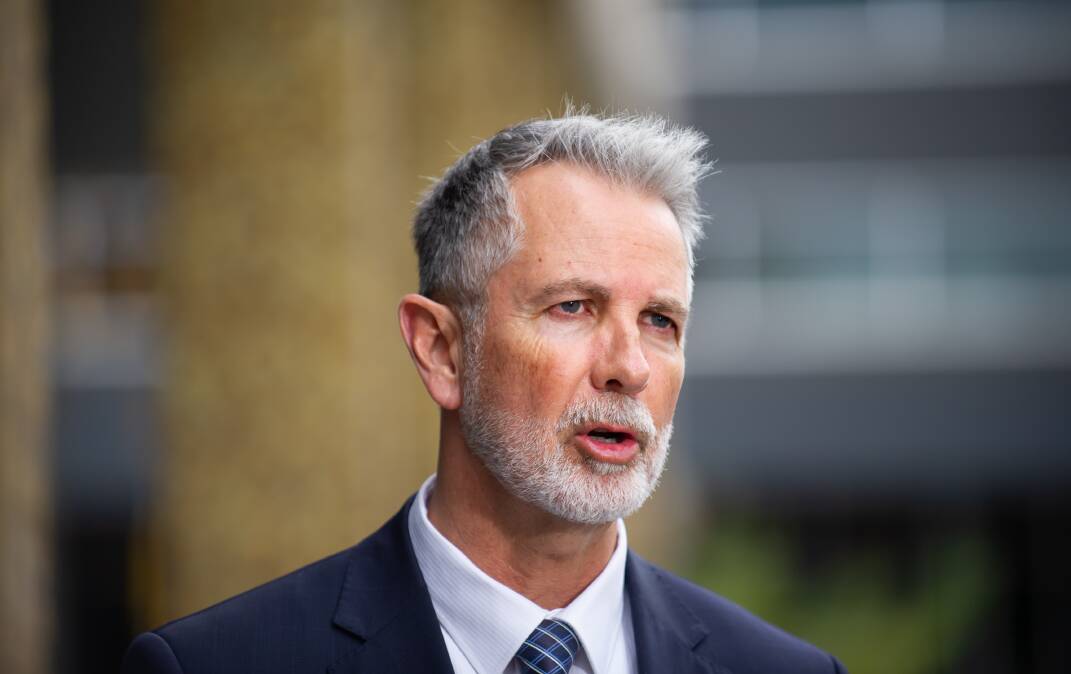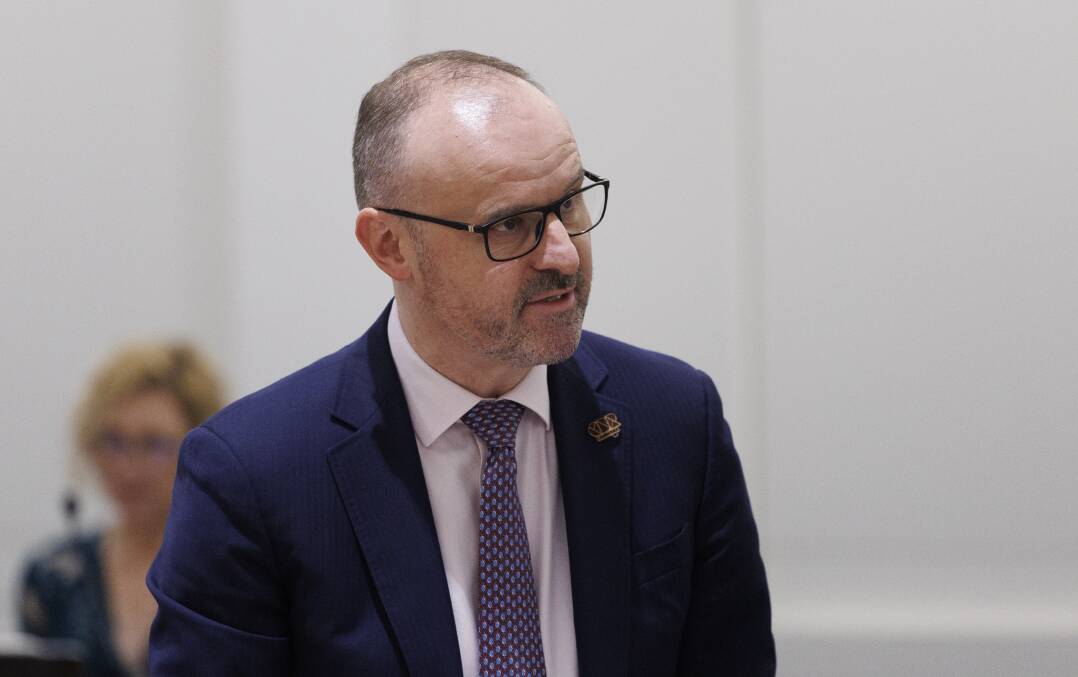Legislation to allow for the compulsory acquisition of Calvary Public Hospital Bruce has passed the ACT Legislative Assembly.
The bill will make way for the government to take over the running of the Bruce hospital from July 3 but the government will first have to face a legal challenge from Calvary.
There was a fiery debate in the parliament as the Liberals staunchly opposed the bill. Labor and Greens members supported it.
About 50 protesters gathered outside the Assembly on Wednesday morning to recite prayers and they chanted "Save Calvary".
Health Minister Rachel Stephen-Smith told the parliament having two providers for the territory's public hospital was against system sustainability. She said it made it almost impossible to plan hospital infrastructure and limited the capacity to share capacity across the system.
"At a time when the pressure on public hospitals is greater than ever and is only forecast to grow, this is a level of inefficiency the ACT can no longer afford," she said.

Acting Opposition Leader Jeremy Hanson said the government had acted without consideration for due process.
"This is a disruptive bill in every possible way. We oppose it on health grounds, we oppose it legally and we oppose it ethically," he said.
"This bill tramples over staff, its tramples over trust and tramples over our democratic principles and over common sense.
"It's an appalling example of a government acting without consideration for due process and without concern for the harm they will cause."
The government has said the move was being done to better integrate the territory's health system and to also allow for the build of a new $1 billion public hospital on the Bruce site.
Chief Minister Andrew Barr told the Assembly the bill was necessary for the territory, saying a new hospital for Canberra's north was desperately needed considering the population of the region was expected to grow by at least another 200,000 people in the next 40 years.
He said studies of land in Canberra's north had determined the Bruce site was the "most suitable and the most logical" for a new hospital.

Mr Barr said having a single provider for the territory's public hospitals would provide more appropriate distribution of patients across hospitals, better continuity of care and better efficiency.
"This major new asset for the people of Canberra must be fully and properly integrated with Canberra Health Services," he said.
"It presents a significant shift in the provision of health care but is in alignment with other jurisdictions and regions of a similar size and it provides the opportunity for greater health efficiencies and outcomes."
Greens leader Shane Rattenbury also spoke for the first time on the bill, saying it was essential for the government to grow the provision of central public health services in the interests of Canberrans.
"There's been some pretty strident language used by those who do not support the proposal and a lot of attempts to make this some kind of ideological debate," he said.
"The government has been perfectly clear about the very valid reasons for the acquisition. The Greens agree with these."
Calvary has said it would challenge the government's legislation over "just terms". Under the legislation, the government said the hospital would be acquired on "just terms" but Calvary national chief executive Martin Bowles said he did not believe this was available under the proposed legislation.

"Our review of the proposed legislation and associated regulation indicates that just terms are simply not available and outside of this there is no indication that commercial terms are available to resolve this matter," he said on Tuesday.
"All we have is an announcement and an imposed unrealistic timeline that has distressed our people and could ultimately put clinical safety at risk."
The only option for Calvary is to file for an injunction in either the Federal or High Court.
Ms Stephen-Smith told the parliament the government had tried to reach an agreement with Calvary. She said there had been discussions for years around the future of Calvary and a new hospital for Canberra's north. She said formal negotiations took place for several months over last year.
But the Health Minister said even if an agreement could be reached with Calvary the Vatican would still need to approve the move. The Vatican's approval processes scuttled a deal between Calvary and the government 13 years ago, where an agreement had been reached for the government to purchase the hospital for $77 million.
Ms Stephen-Smith said the only role religion had played in the acquisition was around the Catholic Church's canon law. She said Calvary would still need the approval of the Vatican.
"My understanding is that canon law has not changed. Now, I am no expert on canon law but I have it on good authority from someone who is that the Little Company of Mary would still need Vatican approval to transfer the land to the government," she said.
"That is the only aspect of Calvary being a religious organisation that has been relevant to our considerations."
Mr Hanson said he believed Calvary would have a strong legal case against the ACT government and he said he had sought advice from senior lawyers in the territory.
"When you look at just terms it's more than just money and when I look at the way Calvary has been treated, I don't see anything just about that," he said.
The Canberra Liberals leader also agreed with his federal counterparts, including federal Opposition Leader Peter Dutton, who had urged Prime Minister Anthony Albanese to intervene in the acquisition.
"I really wish the federal government would step in and stop this from happening," Mr Hanson said.
But Mr Albanese has backed the territory government's move and will not intervene in the matter.
The acquisition is the biggest in the history of the ACT's self-government and came after negotiations between Calvary and the government broke down.
The negotiations were centred around a proposed new hospital for Canberra's north and the role Calvary would play in this new hospital.
The organisation had an agreement with the ACT government to deliver public health services for another 76 years. The government wanted a new 25-year agreement with the organisation but Calvary wanted to retain its current contract.
The Little Company of Mary, the Catholic organisation which runs Calvary, has run the Bruce public hospital since 1979. It entered into an agreement with the federal government in 1971 to run the hospital.
We've made it a whole lot easier for you to have your say. Our new comment platform requires only one log-in to access articles and to join the discussion on The Canberra Times website. Find out how to register so you can enjoy civil, friendly and engaging discussions. See our moderation policy here.







